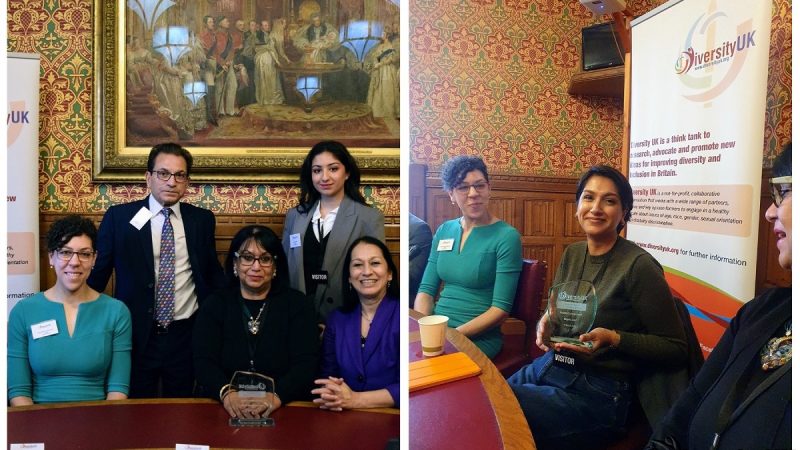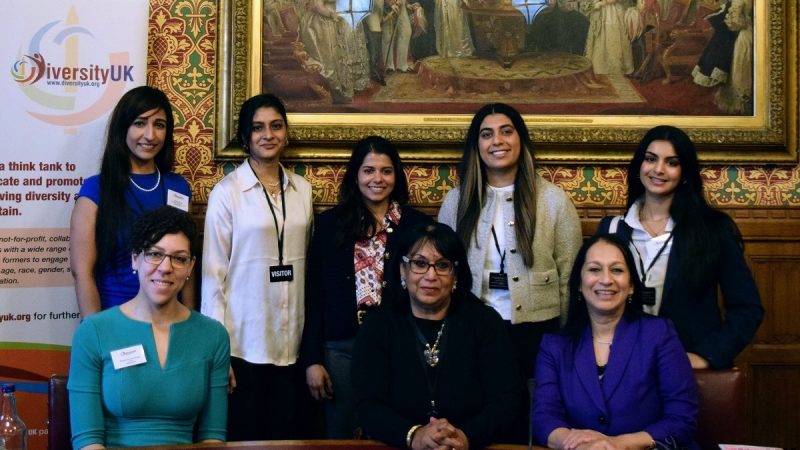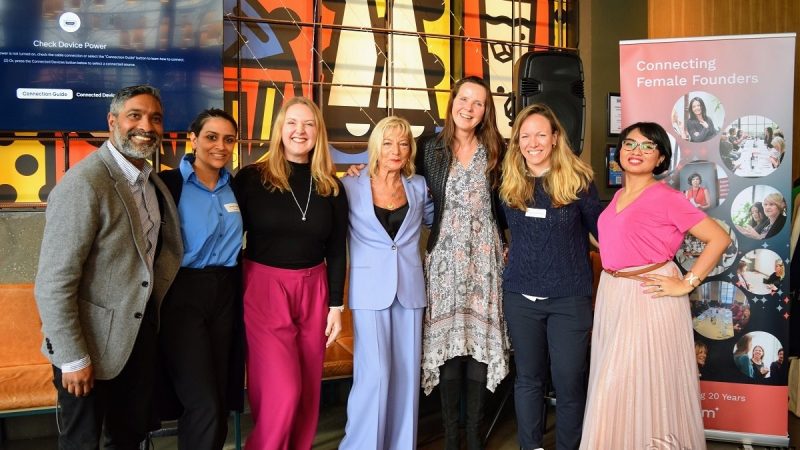Harnessing the Power of the Purse
 Women in the U.S. exercise decision-making control over $11.2 trillion of investible assets and 62% of women in the U.S., UK, China, Hong Kong, Singapore and India identify as the primary source of household assets. Yet, a majority (53%) of female wealth in these markets is unmanaged by an advisor according to new research from the Center for Talent Innovation (CTI). The new report “Harnessing the Power of the Purse: Female Investors and Global Opportunities for Growth,” was launched on Thursday 22nd May 2014 at the House of Commons by Lord Eatwell of Queen’s College, University of Cambridge and the report's authors Sylvia Ann Hewlett, Andrea Turner Moffitt and Melinda Marshall. It draws a nuanced picture of female investors around the world.
Women in the U.S. exercise decision-making control over $11.2 trillion of investible assets and 62% of women in the U.S., UK, China, Hong Kong, Singapore and India identify as the primary source of household assets. Yet, a majority (53%) of female wealth in these markets is unmanaged by an advisor according to new research from the Center for Talent Innovation (CTI). The new report “Harnessing the Power of the Purse: Female Investors and Global Opportunities for Growth,” was launched on Thursday 22nd May 2014 at the House of Commons by Lord Eatwell of Queen’s College, University of Cambridge and the report's authors Sylvia Ann Hewlett, Andrea Turner Moffitt and Melinda Marshall. It draws a nuanced picture of female investors around the world.
The report finds that geography, generation, source of wealth and asset level are all factors that affect how women perceive wealth and arrive at decisions about its allocation. Women don’t just differ from men. In important ways, they differ from each other. Key findings include:
- Female wealth is increasingly self-created and growing: Women are increasingly wealth creators and decision-makers:
- 75% of female wealth creators describe themselves as primary decision makers. Yet, more than half do not have a financial advisor.
- 58% of female wealth creators and 48% of inheritors say their household assets are increasing.
- Women are not a monolithic market: Women differ from men and from each other in how they perceive wealth and make decisions pertaining to their finances:
- Women, like men, want good returns. But once these priorities are met, women look to wealth to provide a larger basket of goods, not just for themselves and their families, but also for society at large. Fully 88 % of women in the global sample want to invest in organizations that promote social well-being.
- American women under the age of 40 (creators, inheritors, and spouses) are dramatically more inclined to see wealth in terms of career latitude: 38% say this is important, versus 16% of the 40-and-over crowd.
- 55% of U.S. women with $1 million or more in assets define wealth as having financial independence versus 84% of women in India and 40% of women in Hong Kong.
Diversity matters: Women want to invest in organizations with diversity in senior leadership:
- 94% of women in China, 93% of women in India, 88% of women in Singapore, 83% of women in Hong Kong, 69% of women in the UK, and 52% of women in the U.S. consider diversity in senior leadership a factor in choosing an organization in which to invest.
Wealth management gap: Women want to be served, not marketed to:
- Of those women in the global sample who do have advisors (53%), 67% feel their advisor does not understand them.
Women do not necessarily prefer a female advisor but they do expect their advisor to have gender smarts and exhibit inclusive behaviors. Advisors who create an inclusive environment - one in which women feel welcome to ask questions and feel assured they’re heard and understood - tend to earn women’s trust, satisfaction, and loyalty.
a) Advisors who take pains to understand their female client are 42% more likely than advisors who do not to earn her trust and loyalty (64% versus 45%).
b) Advisors who are sensitive to women’s time constraints and manage details women do not have time to attend to are 69% more likely than advisors who are not to forge a satisfactory and enduring relationship (61% versus 36%).
“A virtuous cycle is created when banks promote women and women trust banks to manage their assets,” stated Sylvia Ann Hewlett, founder and president of CTI. “Women who leverage their wealth in powerful ways can drive positive social change. If banks tap into this growing market, it’s a win-win for everyone involved.”
Also highlighted in the report are key initiatives designed by financial firms to improve the pipeline of female leadership candidates and the pool of perspective female investors.
About Sylvia Ann Hewlett
Sylvia Ann Hewlett is an economist and the founding president and CEO of the Center for Talent Innovation, a nonprofit think tank where she chairs a task force of 83 global companies focused on fully realizing the new streams of talent in the global marketplace. She’s also co-director of the Women’s Leadership Program at the Columbia Business School. She is the author of 11 Harvard Business Review articles, 11 critically acclaimed nonfiction books including Off-Ramps and On-Ramps; Winning the War for Talent in Emerging Markets; Forget a Mentor, Find a Sponsor and Executive Presence: The Missing Link Between Merit and Success. She has taught at Cambridge, Columbia, and Princeton universities. A Kennedy Scholar and graduate of Cambridge University, Hewlett earned her PhD in economics at London University.
About the Research
The research consists of a survey, Insights in-Depth® sessions (a proprietary web-based tool used to conduct voice-facilitated virtual focus groups) involving more than 100 people from our Task Force organizations, and more than 60 one-on-one interviews. The survey, conducted online in November 2013 through February 2014, sampled 5,924 respondents (4,200 men and 1,724 women: 1,101 US, 1,000 UK, 1,008 China, 1,007 India, 808 Singapore, and 1,000 Hong Kong), aged 21 and older. In addition, screening was done to confirm personal annual income of $100,000 or more or investable assets of at least $500,000. Data in the U.S. were weighted to be representative of the U.S. population on key demographics (age, sex, race/ ethnicity, region, education, and income). The base used for statistical testing was the effective base. Data for the UK, China, India, Singapore, and Hong Kong were not weighted.
About the Center for Talent Innovation
The Center for Talent Innovation is a nonprofit think tank based in New York City. CTI’s flagship project is the Task Force for Talent Innovation—a private-sector taskforce focused on helping organizations leverage their talent across the divides of gender, generation, geography and culture. The 83 global corporations and organizations that constitute the Task Force, representing nearly six million employees and operating in 192 countries around the world, are united by an understanding that the full realization of the talent pool is at the heart of competitive advantage and economic success.
To view the report findings, visit www.talentinnovation.org.




